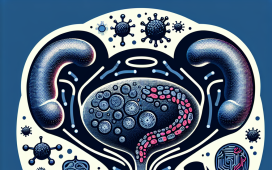The immune system is our body’s natural defense against disease. It is made up of a variety of cells and proteins that work together to fight off infections and other threats. Cancer cells can evade the immune system, but immunotherapy is a new type of cancer treatment that helps to unleash the immune system’s full power against cancer.
There are a number of different types of immunotherapy, but they all work by either stimulating the immune system to fight cancer more effectively or by blocking cancer cells from evading the immune system. Some of the most common types of immunotherapy include:
- Immune checkpoint inhibitors: These drugs block proteins on cancer cells that signal to the immune system to ignore them. By blocking these proteins, immune checkpoint inhibitors allow the immune system to attack cancer cells more effectively.
- T-cell therapy: This therapy uses a patient’s own T cells (a type of white blood cell) to fight cancer. T cells are typically taken from the patient’s blood and then genetically engineered to attack cancer cells. The engineered T cells are then given back to the patient, where they can help to fight cancer.
- Cancer vaccines: Cancer vaccines are designed to train the immune system to recognize and attack cancer cells. Cancer vaccines are still in development, but they have the potential to be a powerful new tool in the fight against cancer.
Immunotherapy is a promising new treatment for cancer, and it is already showing great promise in clinical trials. Immunotherapy has been shown to be effective in treating a variety of different types of cancer, including melanoma, lung cancer, and colorectal cancer.
Immunotherapy is not without its risks, however. Some of the common side effects of immunotherapy include fatigue, nausea, and diarrhea. In rare cases, immunotherapy can also cause more serious side effects, such as liver damage and the development of new cancers.
Despite the risks, immunotherapy is a promising new treatment for cancer, and it is likely to play an increasingly important role in the fight against cancer in the years to come.
The Future of Immunotherapy
Researchers are continuing to develop new types of immunotherapy, and it is likely that immunotherapy will become even more effective in the years to come. Immunotherapy is also being studied in combination with other cancer treatments, such as chemotherapy and radiation therapy. This combination therapy is showing great promise in clinical trials, and it is likely to become a standard treatment for cancer in the future.
The future of immunotherapy is very bright. As we learn more about the immune system and cancer, we will be able to develop even more effective and safer immunotherapy treatments. This will lead to better outcomes for cancer patients and a higher quality of life overall.








